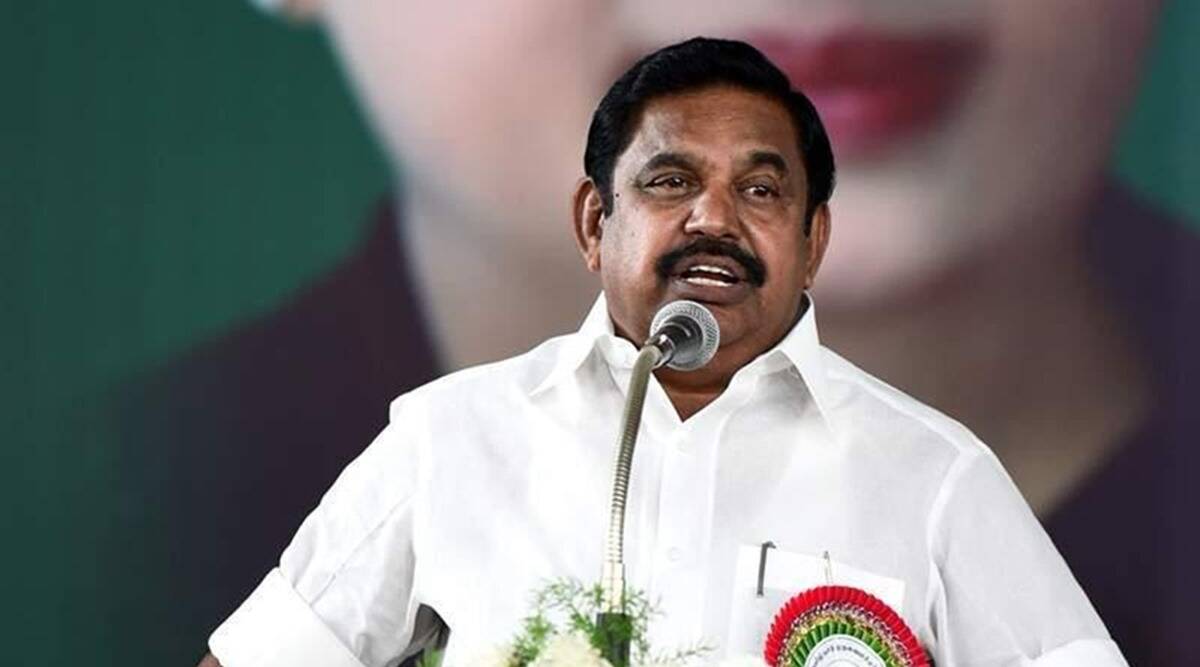The statement comes a day after DMK chief M K Stalin announced a monthly allowance of Rs 1,000 for housewives if his party wins the Assembly elections.
Chief minister Edappadi K Palaniswami promised that the AIADMK-led government will give a monthly allowance of Rs 1,500 to all housewives and six gas cylinders for free annually if it returned to power after the upcoming assembly elections.
The statement comes a day after DMK chief M K Stalin announced a monthly allowance of Rs 1,000 for housewives if his party was voted to power.
Extending his greetings on the occasion of International Women’s Day, Palaniswami said the announcement was a gift for the women of the state.
When asked as to whether his party was following the DMK’s idea, Palaniswami said the decision was a party of their party’s manifesto, discussions regarding which have been happening over the past 10 days. “The DMK might have made their announcement in advance after they got leaks regarding AIADMK’s manifesto. It is natural to have similar ideas,” the chief minister added.
Following DMK’s announcement on Sunday, Makkal Needhi Maiam leader Kamal Haasan had alleged that Stalin’s party was stealing his party’s ideas as it was Haasan who had first made the promise of a monthly allowance for housewives.
While it is raining sops in Tamil Nadu, it is interesting that as per portions of manifestos released by DMK and AIADMK, both parties have been looking to roll out schemes for women, and education and health sectors.
However, there are also questions being raised about the lack of clarity about how the state government could source funds to cater to these heavy-budget schemes.
Top sources at CPI(M) and Congress parties in Kerala, which is also going to the polls this month, said they, too, are coming up with similar schemes in the coming days.
J Jeyaranjan, a social scientist who has an interest in the political economy of Tamil Nadu, said “social justice” is the core idea behind these promises.
“Feasible or not, such promises were the ideas that actually helped us to move forward. When the Manmohan Singh government had introduced MGNREGA, this argument about feasibility was there. In the mid-1970s, when the noon meal scheme was announced by the then Chief Minister M G Ramachandran, the state finance department opposed it saying they had no money. I think the same Manmohan Singh, then in the planning board, had asked MGR whether he was planning to run schools or eateries. The successful implementation of the Universal Public Distribution System is another example in Tamil Nadu. Outcome of all such schemes justifies the intention behind it. Tamil Nadu has been experimenting with such programmes for decades. When you implement such schemes, the state is actually making sure that people will not go and beg,” Jeyaranjan added.
Citing that the state borrowings are already slightly higher and the Centre is reluctant to part with funds, besides cleverly using tax regimes, top bureaucrats at the state finance department were clueless behind the logic of such announcements.
“When they make these announcements, or promise that they will provide 10 lakh jobs annually, what are the details? Such announcements always lack specificity or these are just numbers and figures they keep saying to mask the reality. When you do not say how you would implement these, that actually helps you get away with it, leaving no chance for anyone to take stock of it later. Manifestos should also explain what is the road map to implement these schemes,” a senior bureaucrat in Tamil Nadu said.
Source: Read Full Article


